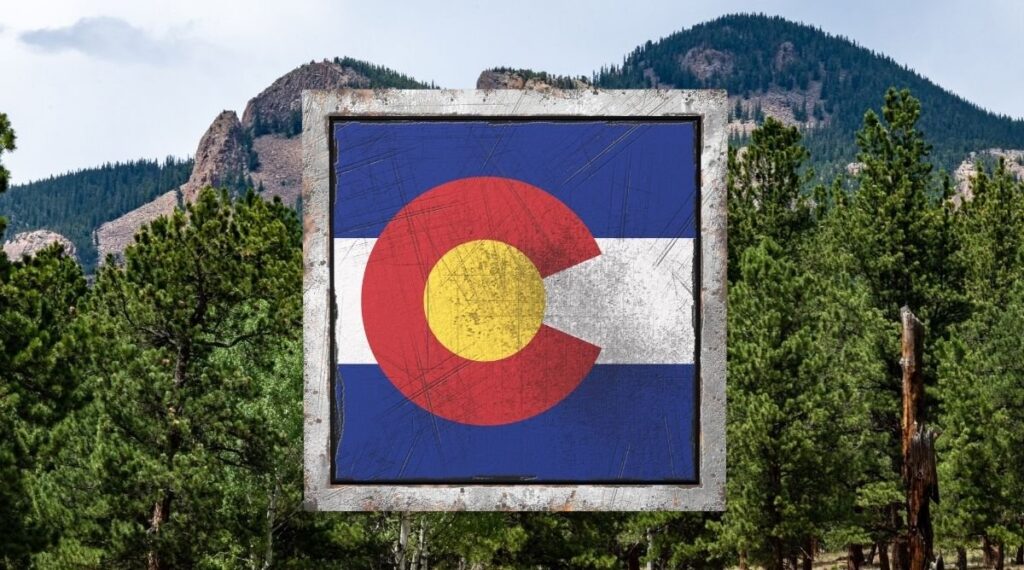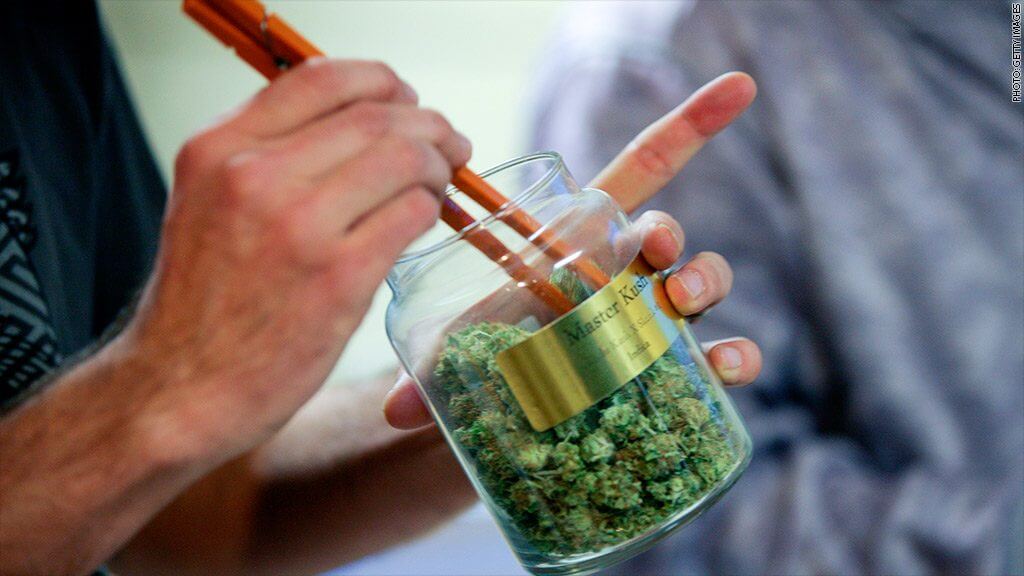
Although recreational cannabis is legal in The Centennial State, there are still plenty of reasons to get a medical marijuana (MMJ) license.
For instance, medical marijuana costs less than recreational (no excise taxes), and there are higher possession limits for cardholders. In many cases, a medical license makes it possible for people with medical conditions to get the treatment they need.
But where do you find a medical marijuana doctor in Colorado? And what happens during a medical cannabis evaluation?
This guide answers both of those questions and more. We’ll also answer some common questions related to getting a medical marijuana license.
To qualify for a medical marijuana registry card, the Colorado Department of Public Health & Environment (CDPHE) requires patients to have at least one qualifying medical condition. You should schedule an in-person evaluation with a doctor to verify that you meet this criteria.
Luckily, there’s no shortage of MMJ doctors in this beautiful state.
Jump down to the bottom of the page for a list of doctors (accompanied by reviews) in every corner of the state:
To start the process of applying for your medical card right now, fill out this form at the top of this page.
Many people are concerned about whether their marijuana doctor is a “real doctor” or not. Rest assured that any doctor you see for an MMJ appointment in Colorado has the proper credentials.
There are two different types of doctors that can grant medical cards in this state:
Learn more about Colorado’s provider requirements on this page.

Your evaluation will be very similar to a typical appointment with a physician. The primary difference is that your marijuana doctor will focus entirely on the condition for which you are seeking treatment.
Your evaluation will be very similar to a typical appointment with a physician. The primary difference is that your marijuana doctor will focus entirely on the condition for which you are seeking treatment.
During the evaluation, they will examine your condition and review your medical records before making their determination.
Patients qualify for an MMJ license if they have at least one of the following health concerns:
Colorado is also one of several states that allow MMJ access for certified patients with debilitating symptoms due to certain autoimmune or chronic conditions, such as MS or multiple sclerosis, ALS (amyotrophic lateral sclerosis), epilepsy, etc.
Patients with degenerative disorders or medical ailments treatable with prescription opioids (ex., severe pain) are also potentially eligible to use MMJ in Colorado.
Colorado residents must have a valid form of identification and current medical documentation certifying their qualifying condition to become a patient. Parents or guardians with eligible minors must provide medical documentation from two different physicians. All new patients, as of January 2022, must have documentation from two physicians from different practices validating their qualifying medical condition.
After learning of their MMJ evaluation status, approved patients can submit their applications to complete the process online through the CDPHE, Medical Marijuana Registry portal, or via the Marijuana Doctors website.
Colorado residents who are at least 18 years old or older at the time of application are eligible for MMJ recommendations as long as they meet additional criteria set forth by the state’s Medical Marijuana Registry.
The state prohibits cannabis possession by anyone under the age of 21. However, minors with certain health conditions may qualify to use cannabis medicinally if the following conditions are met:
Minors must also have a written formal diagnosis certifying their qualifying medical condition from two different licensed physicians. Additional stipulations apply to caregivers of minors.
The fee for patients applying directly through Colorado’s Medical Marijuana Registry program averages around $25. Processing fees apply, which can increase the overall price. Even still, the cost of MMJ cards in Colorado is among the lowest in the country.
There are also costs attached to the evaluation process. The exact price varies by provider but typically ranges from $75 to $150. These same fees also apply to recommendation card renewals.
The state also offers financial assistance for low-income applicants. More info is available through the state’s website (click the link)
Medical cannabis card application and evaluation costs are typically lower for patients who use an all-in-one marijuana recommendation and evaluation network, such as the Marijuana Doctors website. Though the costs associated with getting a medical marijuana card may seem inconvenient, it’s a small price to pay for peace of mind and access to MMJ without legal consequences.

Let’s answer some other common questions about getting an MMJ card in Colorado:
With the recent passing of HB21-1317, Colorado residents with valid MMJ recommendations can purchase up to 8 grams of cannabis concentrates, such as shatter, wax, etc., or 2 ounces of raw cannabis flower.
Exceptions are available for patients with extenuating circumstances. However, petitions to lift the cap on possession limits must include a statement from a primary care physician stating the necessity.
Colorado MMJ recommendations are valid for 12 months. After which, renewal is necessary for patients to retain the right to legally procure, cultivate, and use MMJ without legal consequences.
Renewals submitted via the state’s Medical Marijuana Registry website are usually processed within three business days. Applications with errors or outdated information may take longer to process or be denied. Upon approval, applicants can view and print their cards online.
Once that’s complete, they can schedule an appointment with one of our medical marijuana physicians online to complete their evaluation for recertification to finish the renewal process.
Caregivers are individuals acting in a legal capacity to help qualifying patients procure or use cannabis to treat their health concerns.
Colorado residents who are interested in becoming caregivers must apply for a license. To qualify, applicants must be at least 18 years old, not a current owner of an MMJ business, and have no professional medical affiliation with their patients.
Medical patients with active recommendation cards are prohibited from becoming caregivers for others. Patients are not required to have caregivers.
Colorado recognizes the following types of medical cannabis caregivers.
Upon approval, caregivers receive MMJ licenses with the names of their patients.
Sadly, Colorado does not currently allow nonresidents with out-of-state recommendation cards to buy medical marijuana from its state-licensed marijuana dispensaries. However, visitors over the age of 21 can purchase cannabis for recreational use.
The purchase limit for nonresidents is one ounce.
Marijuana Doctors is a one-stop medical cannabis website for adults interested in getting their medical recommendations and evaluations online.
Use the form located at the top of this page to get approved and in touch with medical marijuana evaluation provider today!
The short answer is yes. However, each jurisdiction has unique stipulations regarding the number of medical cannabis plants that patients and caregivers can grow and possess in their homes.
Patients with valid cannabis recommendation cards can legally grow up to six marijuana plants. But, of the six, only three mature marijuana plants are allowed.
Recreational users can grow cannabis in Colorado without a medical card. But, they are limited to six cannabis plants, with no more than three past the flowering stage at any time. For adults over 21 without medical recommendation cards, limits are capped, and strict regulations apply.
Caregivers can grow up to 36 plants concurrently as long as they have five patients. Cultivation and possession limits are lower for caregivers with fewer than five patients. There are exceptions for some caregivers to grow up to 99 cannabis plants. State authorization is necessary.
Currently, Colorado has over 425 MMJ stores and 622 marijuana retail facilities for patients and recreational users to shop for cannabis. Patients can visit any approved MMJ retail facility in the state for their needs.
The following types of medical marijuana products are available for purchase at dispensaries across the state:
Need to find the closest MMJ dispensary to your location? We’ve got you covered. Simply click here to find Colorado dispensaries near you.
If you experience pain, nausea, or other symptoms that interfere with your daily activities or overall quality of life, a medical cannabis card may be the solution for your situation.
Marijuana Doctors can help by putting you in touch with an approved medical marijuana physician to start the process.
We partner with professional yet compassionate marijuana-approved physicians. Our cannabis-friendly medical providers are licensed and board-certified and provide online medical evaluations for patients in states with active medical marijuana registry programs, including Colorado.